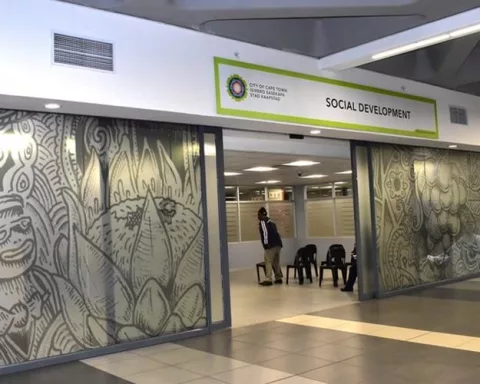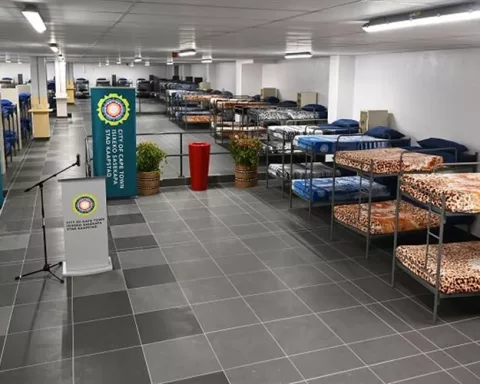Cape Town is launching an initiative to transition individuals living in illegal settlements into Safe Spaces, with over 150 people voluntarily relocating in the initial week of August. The remaining illegal dwellers will be evacuated after August 12th, and their personal possessions will be cataloged and held at a city facility. The Safe Spaces offer medical attention, substance misuse therapy, EPWP work, family reunification services, and personal advancement programs to help individuals permanently move away from the streets. The city of Cape Town is committed to allocating R220 million over three years to expand and manage its Safe Space transitional shelters.
Launching an Initiative: Transition to Safe Spaces in Cape Town. The city plans to facilitate voluntary relocations to Safe Spaces in the initial week of August and measures will be enacted to evacuate any remaining illegal dwellers after the 12th of August. The individuals being evacuated will be requested to collect their personal possessions and any items left unclaimed will be cataloged and held at the city’s Ndabeni facility.
In an admirable endeavor, over 150 individuals have warmly welcomed the city of Cape Town’s generous proposal to shift into Safe Spaces, which are respectful transitional shelters. This decision comes in the wake of the final eviction order delivered by the Western Cape High Court, targeting various illegal settlements in the city center.
The Relocation Process
The city plans to facilitate voluntary relocations to Safe Spaces in the initial week of August. Subsequently, measures will be enacted to evacuate any remaining illegal dwellers after the 12th of August. The court order, now modified by consent, incorporates these new timelines.
The eviction order is applicable to several unauthorized sites situated along Buitengracht Street, FW De Klerk Boulevard, Foregate Square, taxi rank and Foreshore, Helen Suzman Boulevard, Strand Street, Foreshore/N1, Virginia Avenue, and Mill Street Bridge. An ongoing interdict is included in the order to halt further illegal occupation in these zones.
During the eviction procedure, the individuals being evacuated will be requested to collect their personal possessions. Any items left unclaimed will be cataloged and held at the city’s Ndabeni facility, where the rightful owners can retrieve them at their convenience.
Safe Space Shelters: An Open Offer
All the individuals involved have been extended an invitation to reside at the newly constructed 300-bed Ebenezer Safe Space. A notable 127 individuals have chosen to make this location their new home while an additional 26 individuals will transition to the Culemborg Safe Space 2. The offer is still available for those who have not yet decided to accept it.
Mayor Geordin Hill-Lewis expressed satisfaction regarding the majority of people accepting the offer of the respectful Safe Space transitional shelter. The services provided to these individuals encompass medical attention, social workers, substance misuse therapy, family reunification services, EPWP work, and personal advancement programs. All these services are designed to assist them in permanently moving away from the streets.
Expanding and Operating Safe Space Shelters
The city, committed to allocating R220 million over the coming three years, is resolute in extending and managing its Safe Space transitional shelters, which currently offer 1,070 beds across facilities in the city center, Bellville, and Durbanville. There are plans in motion to inaugurate more shelters throughout the metropolitan area.
At present, the city runs two Safe Spaces in Culemborg, located in the east CBD area, providing 510 shelter beds across the facilities. A new 300-bed Safe Space in Green Point was inaugurated in July 2024, with an additional facility in the pipeline for Muizenberg.
One of the city’s programs, the Matrix substance abuse treatment, boasts an impressive 83% success rate for clients. This program addresses a key reason why many individuals end up living on the streets.
Wrapping Up: The City’s Safe Space Model
In summary, the city of Cape Town’s Safe Space model is a laudable initiative that offers a comprehensive suite of services to its residents. These include respectful shelter, comfort and washroom facilities, provision of two daily meals, access to an on-site social worker, personal development planning, assistance with social services like ID Book and social grant, family reunification services, and access to substance and alcohol abuse treatment. Also, it provides skills training, job-seeking support, and access to EPWP work placement. This initiative truly represents a holistic approach to assist individuals in transitioning from the streets to dignified living spaces.
1. What is the Safe Spaces initiative in Cape Town?
The Safe Spaces initiative in Cape Town is a program that offers respectful transitional shelters and comprehensive services to individuals living in illegal settlements, with the goal of helping them permanently move away from the streets.
2. When will the individuals in illegal settlements be relocated to Safe Spaces?
The city plans to facilitate voluntary relocations to Safe Spaces in the initial week of August. Subsequently, measures will be enacted to evacuate any remaining illegal dwellers after the 12th of August.
3. What services are offered at Safe Spaces?
The services provided to individuals at Safe Spaces include medical attention, social workers, substance misuse therapy, family reunification services, EPWP work, and personal advancement programs. All these services are designed to assist them in permanently moving away from the streets.
4. How many Safe Spaces does Cape Town currently have?
Cape Town currently has 1,070 shelter beds across facilities in the city center, Bellville, and Durbanville. There are plans in motion to inaugurate more shelters throughout the metropolitan area.
5. What is the Matrix substance abuse treatment program?
The Matrix substance abuse treatment program is a program offered by the city of Cape Town that boasts an impressive 83% success rate for clients. This program addresses a key reason why many individuals end up living on the streets.
6. What kind of support is available for individuals at Safe Spaces?
Individuals at Safe Spaces have access to respectful shelter, comfort and washroom facilities, provision of two daily meals, access to an on-site social worker, personal development planning, assistance with social services like ID Book and social grant, family reunification services, access to substance and alcohol abuse treatment, skills training, job-seeking support, and access to EPWP work placement.












